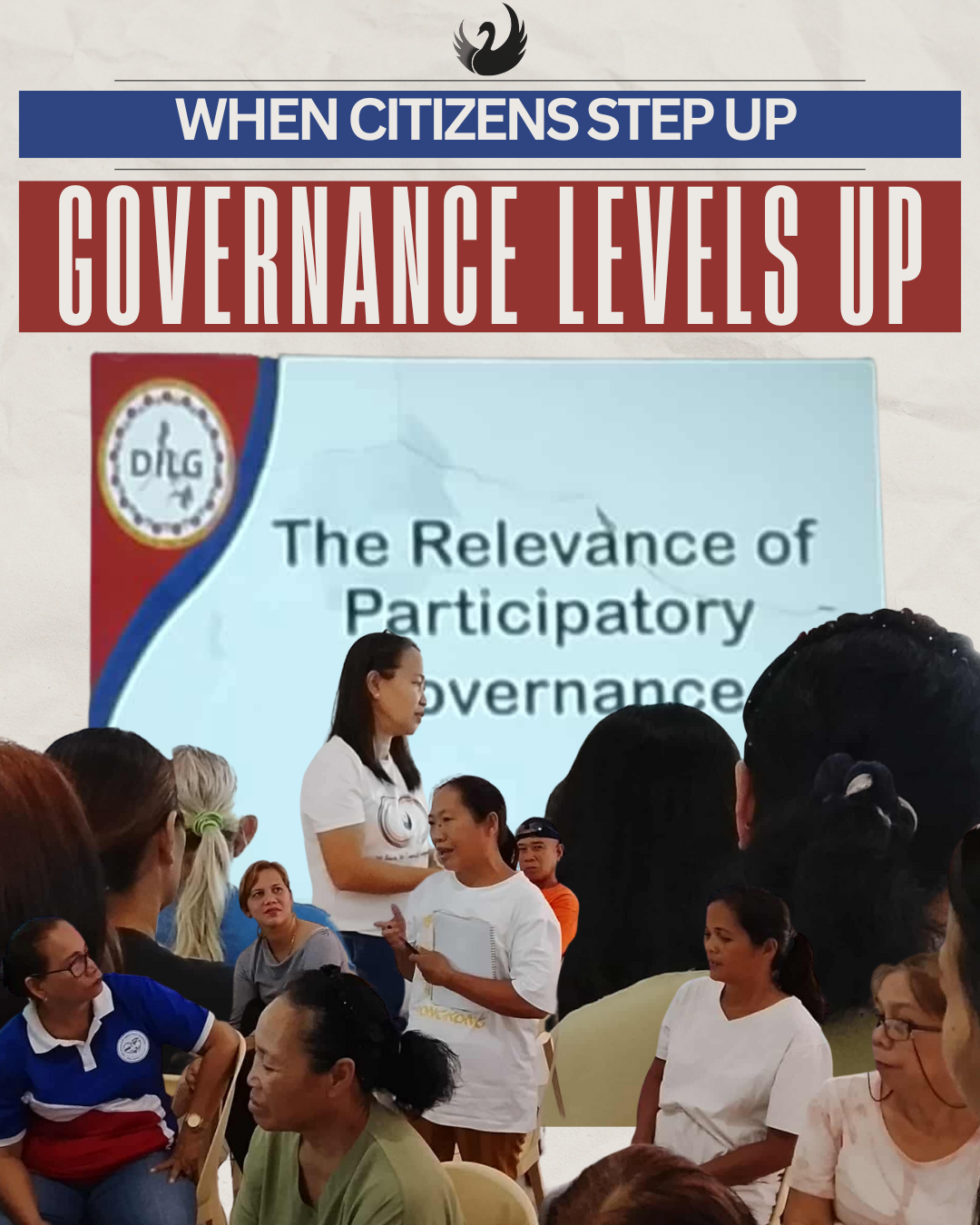If there’s one thing we Filipinos love, it’s giving opinions—on politics, the barangay basketball game, TikTok chismis, and even on why the neighbor’s rooster crows at 2 AM. But when it comes to actual governance, where our opinions truly matter, many of us suddenly switch to airplane mode.
Which is why the Orientation on Participatory Planning and Budgeting held at the Liga Hall in New Lucena was more than just a seminar—it was a gentle nudge, a wake-up call, and a warm reminder wrapped into one message:
“Citizen participation is the key in governance—and the bedrock of any strong nation.”
And leading that conversation with clarity, conviction, and a touch of humor was Ms. Jennifer E. Ealdama, MLGOO, who reminded everyone that good governance is not a spectator sport. It is a community project.
The Law Actually Wants Us to Participate—Imagine That
Some people think government participation is optional, like replying to a GC. But as Ms. Ealdama emphasized, citizen involvement is literally written in the country’s foundations.
- 1987 Philippine Constitution, Article II, Section 23
- Local Government Code of 1991, Article 62 of Rule XIII
These laws didn’t mince words—they expect citizens to participate, speak up, and help shape development. Democracy isn’t designed for fence-sitters.
CSOs: More Than Acronyms—They’re the Community’s Backbone
One major takeaway: Accreditation of Civil Society Organizations (CSOs) at the barangay level matters—a lot.
Not for bragging rights, but because accredited CSOs get a seat where real decisions happen: the Barangay-Based Institutions (BBIs).
Being a CSO, however, isn’t just about attending meetings and taking cute group photos. It requires heart, responsibility, and a very Filipino value—pakialam in the best possible sense.
A CSO must be:
- Active – show up, speak up, follow up.
- Responsible – represent your advocacy with integrity.
- Grounded – bring community issues to the LGU for possible support and funding.
If you want the LGU to hear your cause, you need to bring it to the table. And to get to the table, you need accreditation. Simple.
Barangay Participatory Planning: Because Development Should Not Happen Behind Closed Doors
Barangay Participatory Planning is more than a technical process—it is where dreams, needs, and realities are stitched into the Barangay Development Plan.
Here’s what many may not know:
- The Barangay Development Council (BDC) must be reconstituted within 100 days after elections.
- And—finally—at least 40% of its members must be women.
(Because development without women? Good luck.)
Before the BDC even meets, every Barangay-Based Institution identifies its proposed Programs, Projects, and Activities (PPAs). These are then consolidated and refined at the BDC level.
It’s an ecosystem—one that works only when each part actually moves.
Monitoring: Not Just for Teachers and Jejemon Grammar Patrols
A monitoring team also needs to be formed to track the progress of PPAs. Why?
Because a plan without monitoring is basically a wish list.
During the open forum, this became painfully real when someone noted a project where the materials delivered were lacking. The advice?
“Ask the MPDC about the program of works.”
In other words: If something looks off, follow the paper trail. Accountability begins with curiosity.
So, Where Do CSOs Fit In During Sessions?
One brave soul asked:
“Pwede ba mag-attend sa regular session ng barangay council ang CSO?”
The answer?
No.
At least, not in regular legislative sessions—they’re internal to council members.
But CSOs can participate in the BDC, and if you want in, you simply need to formally write to signify your intention to join.
Not complicated. Not scary. Not rocket science.
The Bottom Line: Democracy Works Best When We Do
If this orientation proved anything, it’s this:
Governance is not just the job of officials—it’s a shared responsibility.
The barangay is not just a place where you pay taxes, request indigency certificates, or complain about the kapitbahay’s videoke.
It is the smallest unit of our democracy, and also the most powerful—because it is closest to the people.
And people—ordinary citizens, CSOs, youth, women, farmers, entrepreneurs, tricycle drivers—are not meant to be silent recipients of decisions. They are co-authors of the future.
So yes, participation is a right.
But more importantly, it is a duty.
If we want better governance, stronger communities, and a more accountable barangay—
we don’t just wait for change.
We help write it.





Leave a Reply